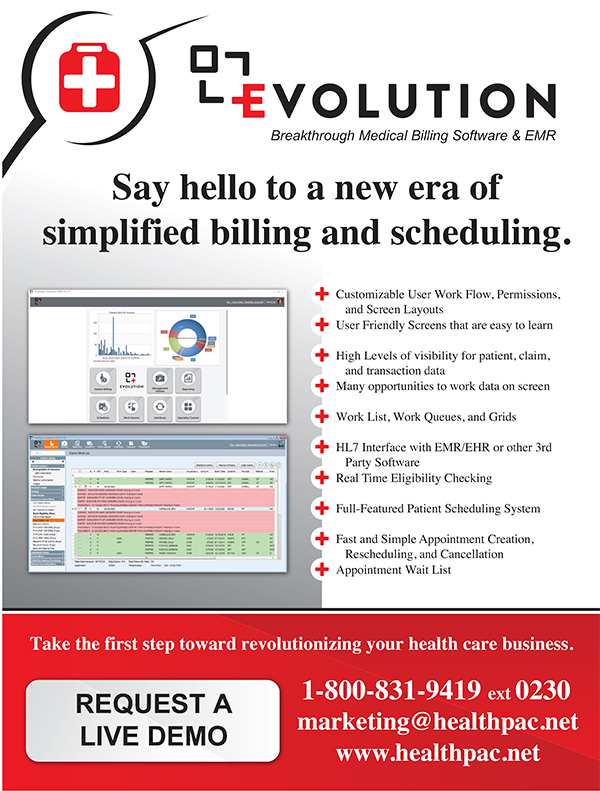
INCREA$ING the Value of Your Medical Billing Company
Timing the performance of your company and creating a strong position to sell your company for the maximum value.
By Kelly Shaw

The mergers and acquisition market for medical billing companies has never been more active than in the last few years. This activity has led to significant financial rewards for owners of medical billing companies who are looking to sell their company. Current valuation multiples are strong, and sellers have the ability to control the terms and conditions of a transaction because of the number of buyers looking to acquire medical billing companies. But given these favorable selling conditions, there are still some things you should consider to increase the value of your medical billing company.
Selling your medical billing company is all about timing. First, you are trying to time the performance of your company. Second, you are trying to time the performance of the market (and, as discussed above, it is excellent right now). And third, you are trying to time your personal circumstances to align with your motivation to sell. Often these personal circumstances are pushed on you, such as a health issue, divorce, or even burnout. Either way, it is important to know when it is emotionally the right time to sell.
This article is focused on helping you time the performance of your company and creating a strong position to sell your company for the maximum value.
Increasing Revenue and Profits
The value of your medical billing company is based on a multiple of revenue and profits. A growing top line (revenue) and healthy bottom line (profits) result in higher multiples and a higher valuation. Don’t be discouraged if your company doesn’t have double-digit growth in revenues and profits. Your company will still have a very strong valuation in the current market with three years of steady performance.
I am often asked which of the two is more important: increasing profits or increasing revenue? The answer is increasing revenues. The majority of buyers for medical billing companies are other medical billing companies. As a result, a strategic buyer will have significant cost saving combined with operational synergies that will lead to increased profit margins after the acquisition. But before the acquisition, they will consider revenue as the baseline for determining the value of the business.
Client Concentration and Client Relationships
Having a single client that constitutes more than 25% of your revenue could be seen as a risk. It may not hurt the valuation of the company, but it will significantly impact the terms of a sale. The way to share this risk is with an earn-out. For example, 80% of the purchase price will be paid at the closing. Then the remaining 20% is paid over the next 12 months as the clients remain with the company. If the client concentration is high, then you could expect to have 50-60% paid on an earnout.
The second issue involves your relationship (the owner) with the clients. The less critical you are to your client as an owner, the more valuable your company will become. I know that sounds counterintuitive. But if all the client relationships revolve around you as an owner, then the risk of the clients leaving for another company is much higher. You want your clients to remain with your company long after you have gone because of the service they receive from your company. If you have all the critical client relationships, then work at having those interactions and relationship shifted to your employees. It will reduce the risk of losing clients after the sale and make your company more valuable.
Advertisement. Click on image to visit advertiser's website. Story continues below.

|
Control Employee Costs
Another way to increase the value of your business is to control employee costs. On average (remember this is an average), a medical billing company should have about one employee for every $80,000 to $100,000 in revenue. If your company is doing a $1 million in revenue, then you should have about 10 employees. This is often offset if you opt to do data offshoring. In general, a company that does data offshoring will increase profit margins by about 8-10%. Also, your cost of labor should be less than 50% of the total revenue of the company. If you are over 50%, then you are spending too much on your employees. Controlling your employee costs will go a long way to increasing your value.
Provider Contracts
We are seeing more and more companies move away from long-term contracts and move toward month-to-month contracts. Be sure there is a clause in the contract or BAA that allows for assignment of the contracts to the new buyer. Having such a clause (or moving to a month-to-month option) will make your company more saleable. It allows the buyer to purchase your company without the trauma of notifying all your clients and hoping they choose to remain a client. Again, if your current contracts don’t have such a clause, don’t worry, the sale and transition can still happen; it just take a little more work, time, and careful planning.
Credentialing and Coding
Medical billing companies that provide credentialing and coding are more valuable than companies that do not. You don’t necessarily have to provide these services in house. You could hire a third-party vendor that provides the service as though it was your company. Charging for credentialing and coding in addition to your standard collection percentage will make your company more valuable. Credentialing and coding tend to consume employee resources and, over time, if you are not charging for the services, you will find they eat away at your profit margins.
Paperless
Antiquated systems scare buyers away and drive down the value of your business. Using EMR bridges into your house software or billing out of the providers’ software is far more desirable for potential buyers. Running a courier route to pick up super-bills and then keying them into your software is not efficient. The fewer keystrokes you have to do to process a claim, the more valuable the business will become.
Remote vs. Office
It was not long ago when the standard was for everyone to have an office and all the employees came into the office to work. COVID-19 forced medical billing companies to go remote. The question is do you stay remote or do you bring your employees back to the office? Medical billing companies have optimized technology that allows employees to work remotely. Companies operating with remote employees are more valuable than those that still have office lease obligations and bring everyone into an office.
COVID-19
We are often asked if COVID-19 and the slump in revenue that occurred in 2020 will affect the value of a medical billing company. The answer is no. For the most part, it was a deferral of revenue and not a loss of revenue, and buyers know that the providers will sustain normal revenue long term.
As a firm that specializes in representing medical billing company owners through the process of selling, we are very familiar with the ups and downs of medical billing and the process of maximizing the value of your company. Remember, no company is perfect. Hopefully you can look at your company and determine where you can work to increase the value of your company. If you intend is to sell one day, then maximize the value of the company. The best time to prepare for the future is now.
 Kelly Shaw is a managing partner of the Bristol Group, a mergers and acquisition/business brokering firm with 14 locations in the United States. Shaw started his career over 40 years ago in investment banking and has developed an expertise in healthcare transactions. In the early 1990s, he owned a medical billing company. That experience has been instrumental in developing a deep transaction history and experience as an M&A advisor helping medical billing company owners sell their businesses. Kelly Shaw is a managing partner of the Bristol Group, a mergers and acquisition/business brokering firm with 14 locations in the United States. Shaw started his career over 40 years ago in investment banking and has developed an expertise in healthcare transactions. In the early 1990s, he owned a medical billing company. That experience has been instrumental in developing a deep transaction history and experience as an M&A advisor helping medical billing company owners sell their businesses.
|



 Kelly Shaw is a managing partner of the Bristol Group, a mergers and acquisition/business brokering firm with 14 locations in the United States. Shaw started his career over 40 years ago in investment banking and has developed an expertise in healthcare transactions. In the early 1990s, he owned a medical billing company. That experience has been instrumental in developing a deep transaction history and experience as an M&A advisor helping medical billing company owners sell their businesses.
Kelly Shaw is a managing partner of the Bristol Group, a mergers and acquisition/business brokering firm with 14 locations in the United States. Shaw started his career over 40 years ago in investment banking and has developed an expertise in healthcare transactions. In the early 1990s, he owned a medical billing company. That experience has been instrumental in developing a deep transaction history and experience as an M&A advisor helping medical billing company owners sell their businesses.